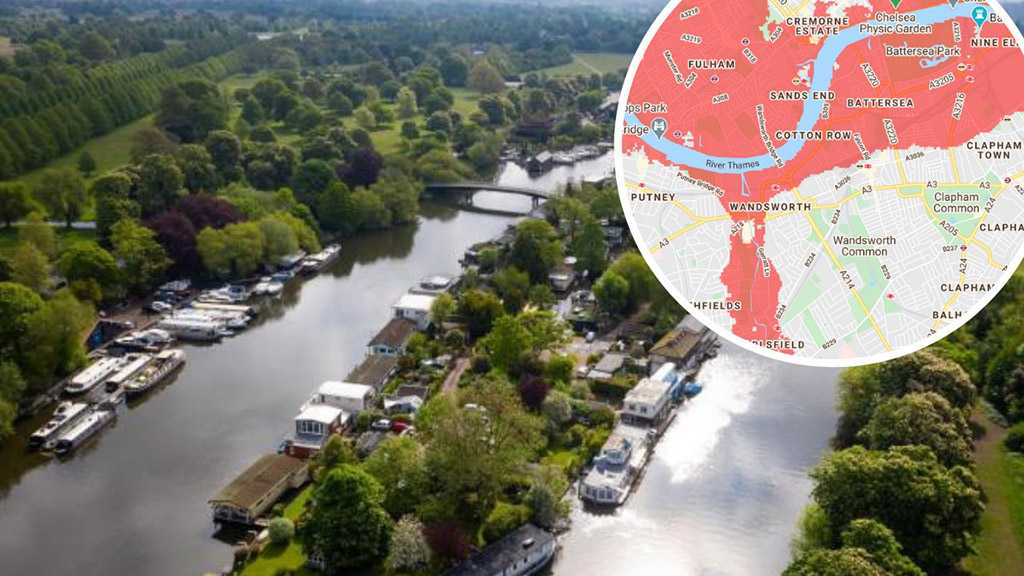
Parts of London Could Become Permanently Submerged by 2030

By Staff, Agencies
Parts of London could be submerged by 2030, according to an interactive map, depicting regions around the world that are at risk of being inundated due to sea-level rise in the coming decades.
The map, created using new software developed by NASA, shows the dynamics of sea level rise from 2020 to 2150, offering information on glacier melt and changes in the circulation of ocean trans-oceanic currents.
According to the map, wide areas of central London are now threatened by regular flooding that will leave some parts permanently submerged.
Britain’s capital experienced heavy rains last week that caused mass floods, disrupting car traffic and mass transit, especially in the districts of Battersea and Tooting. The disaster was the third in recent weeks.
Europe and other regions have faced severe natural calamities, such as floods and wildfires caused by climate change, which is creating the unprecedented heat waves and speeding the melting of glaciers.
Heavy floods hit Europe last month, including in Austria, Belgium, Croatia, Germany, Luxembourg, the Netherlands, Switzerland and Italy, killing 229 people, with the largest percentage of casualties, 184, reported in Germany alone.
According to scientists, the global warming resulting from climate change is causing an increase in average annual temperatures that is causing glaciers to melt and sea levels to subsequently rise. The changes are interfering with the natural balance of all ecosystems, disrupting rainfall patterns, causing temperature anomalies and increasing the frequency of natural disasters such as hurricanes, floods and drought.
The predominant science has found that human activity is the primary driver for fossil fuel greenhouse gas emissions that are heating up the climate, and all governments are urged to take action to find alternatives to the use of oil and natural gas. There are others, however, who continue to insist that the planet is simply experiencing a long term climate cycle caused by changes in the Earth's orbit or increased solar activity.
Comments
- Related News



